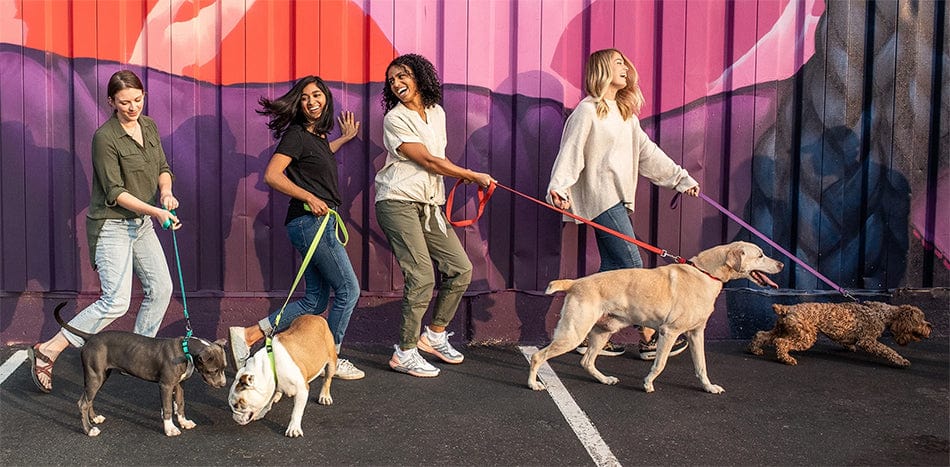Your cart is empty. Let's fix that!


No matter if your pup makes more of a boof or bork noise, their bark is how they speak to the world. The whimpers and woofs of our lovable canines are their way of expressing their feelings, wants and needs to us. Dog’s don’t bark simply because they can; it’s a trait that has evolved over time to allow them to communicate their emotions and intent. Wolves, the genetic ancestor of the modern dog stop barking once they’ve reached maturity. This means that your pup’s barks are largely a result of generations domestication in their bloodline.
The type and frequently of a dog’s bark are largely dictated by its breed. Several breeds were taught to be barkers over time so that they could alert people to trouble, protect homes and help hunters locate prey in the wild. A dog’s bark is dependent on the situation they’re in and what they’re reacting to. You’re definitely not crazy when you say you understand the differences in your dog’s barks!
In the same way Joey from Friends protects his food, dogs protect what is theirs. In many cases, a dog barks to notify a person or animal that they are entering what could be considered their territory. When the person or animal gets closer, the bark gets louder.
Some dogs bark as a self-soothing act to combat anxiety. An anxious bark is usually higher in pitch and whimpers usually accompany it. It’s adorably heartbreaking. You’ll hear this type of barking with dogs who face separation anxiety or express certain fears.
Probably the most common type of bark, this is when your pup desperately wants your attention. These barks are usually combined with whining sounds and maybe even some playful pawing. It’s like in Family Guy when Stewie is yelling “mom” over and over again. So when you hear those barks give your furry friend some well-deserved pats and love.
This bark is common for puppies and younger dogs. The sound of the bark tends to be upbeat and is usually directed at people or other dogs. You’ll notice these sort of barks when your dog wants to show excitement for the leash, their favorite toy or for car rides. You’ll also notice these types of barks when you come home, and your pup is excited to see you.
This one is pretty obvious, but dogs tend to bark at one another. Some dogs even bark as a reaction to other dogs barking. Once one starts the others join in. It’s the pup version of being at a party when Brown Eyed Girl comes on.
There’s no perfect method for getting a dog to stop barking completely. Yelling or raising your voice to their barks can actually have the opposite effect. Dogs can perceive your raised voice as you trying to join the bark train – which is pretty funny if you think about it. The best course of action is to try and understand what is making your dog bark and treating that specific situation. You can also train your dog to understand commands like “quiet” by giving them high-value treats. Because as both humans and canine know, food is a great motivator!